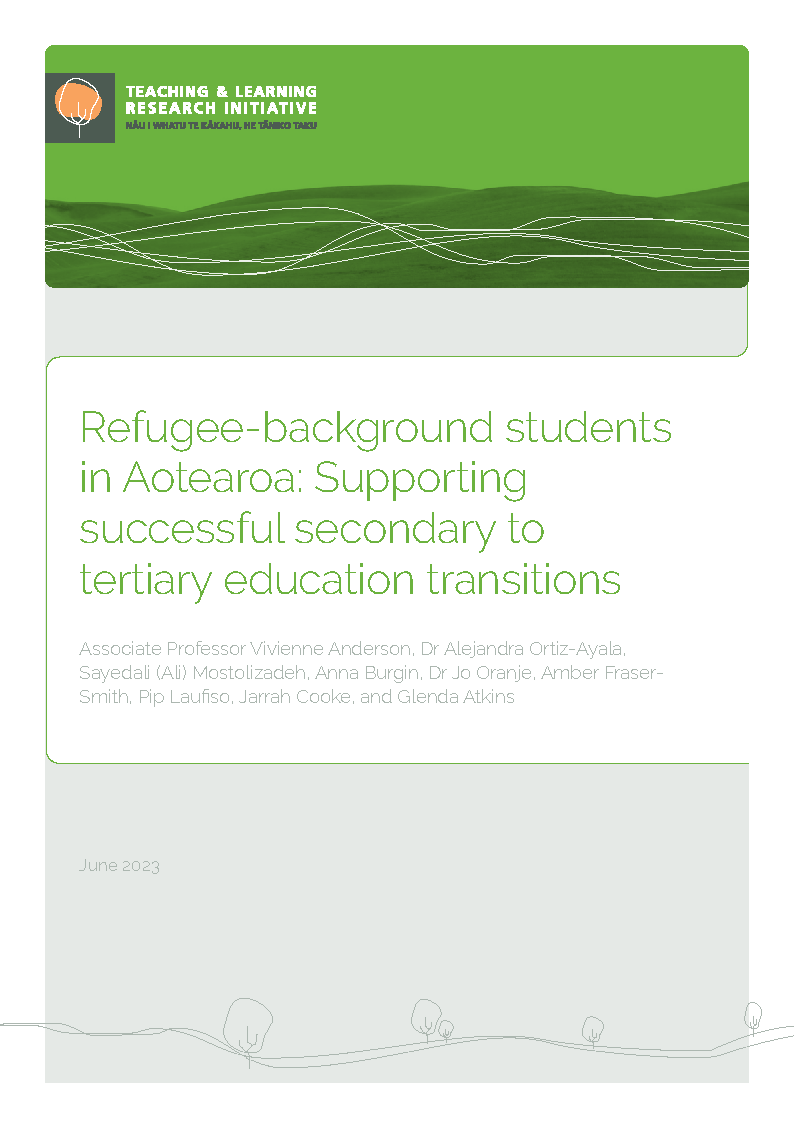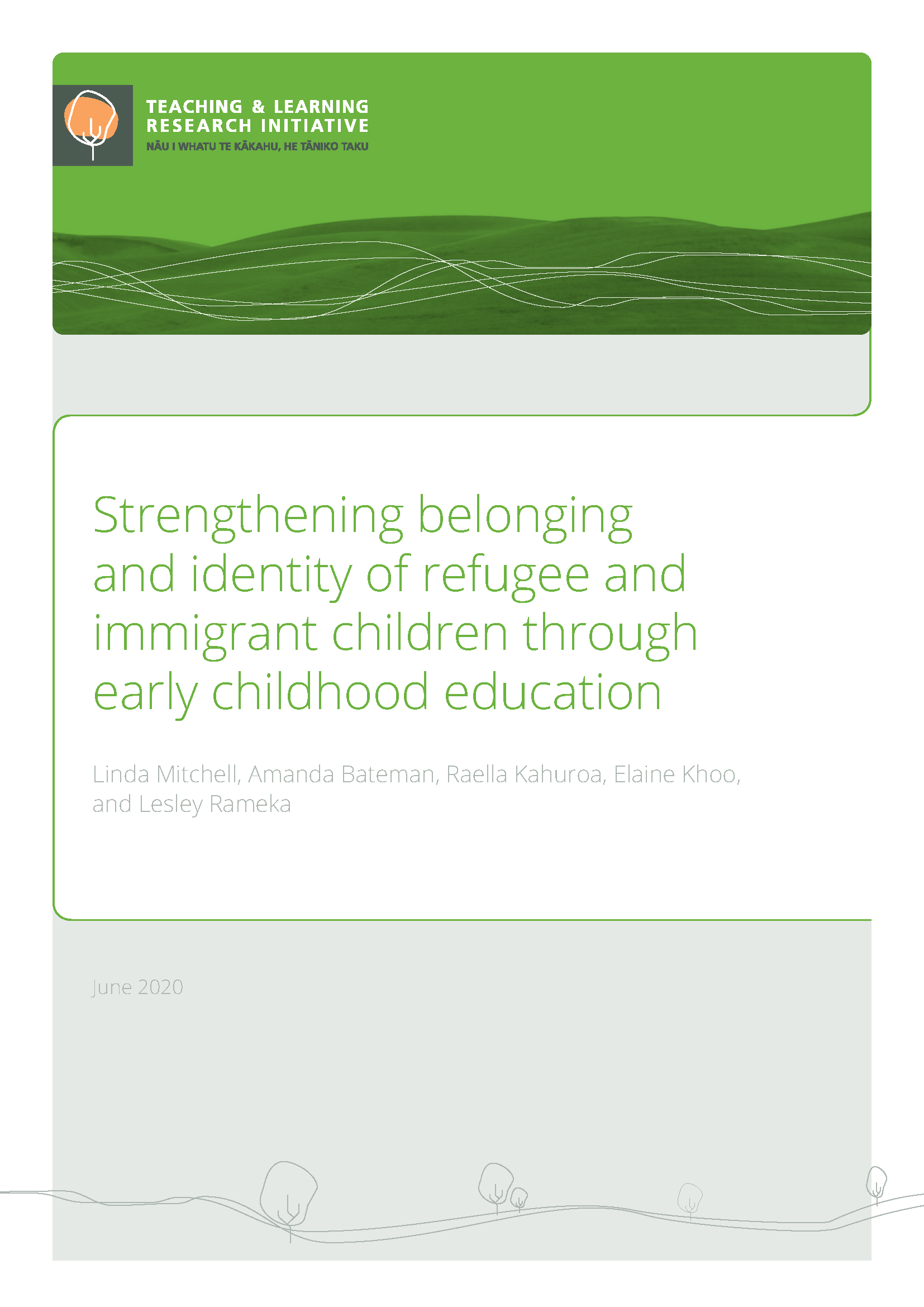
Refugee-background students in Aotearoa: Supporting successful secondary to tertiary education transitions
Background (why we did the research) Human displacement is currently at the highest level internationally since World War II. According to the UN High Commissioner for Refugees (UNHCR, n.d.), the number of displaced persons has increased by more than 70 percent since 2011; in mid 2022, there were 103 million forcibly displaced people worldwide. Of these, 32.5 million were refugees, and only 42,300 were resettled. Over a third of displaced people (36.5 million) were children aged under 18 years. The 1951 UN Convention for Refugees and 1967 Protocol on the Status of Refugees define as a refugee someone who “is unable or unwilling to return to their country of origin owing


